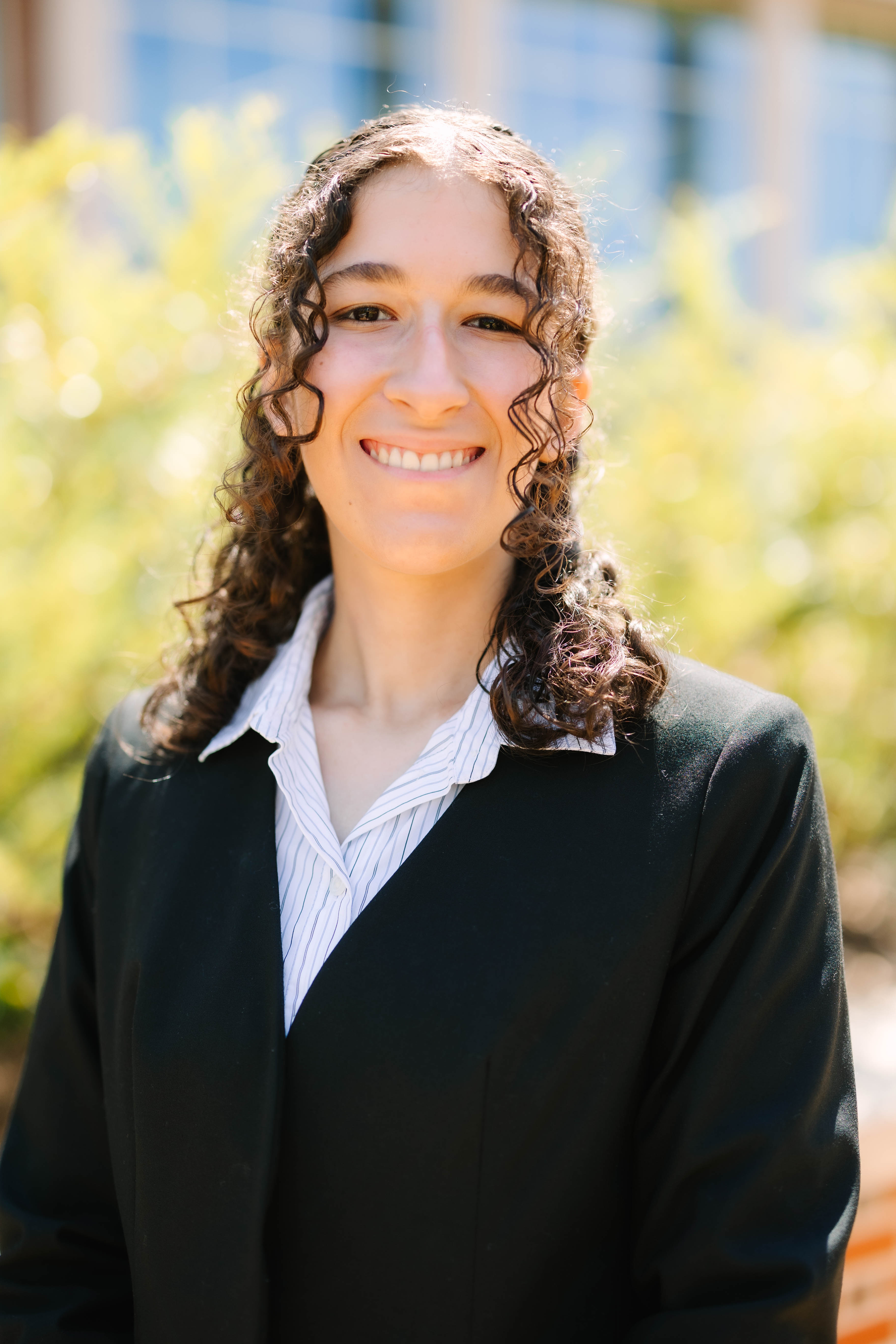Student Stories
Civil and Environmental Engineering Research Story: Carolina Triboni

Carolina Triboni
Civil & Environmental Engineering
What research did you complete and who did you complete it with?
I completed water resources research with Dr. Jose Vasconcelos through the Civil Engineering Department. Over the span of two years, I assisted with two separate projects. The first project focused on wavefront and air pocket formation in open-channel flow in single-conduit pipes, and how different variables (slope, roughness, discharge) increase or decrease the risk of air entrapment. The second project included the analysis of an idealized stormwater grid system under uniform rainfall, and how different variables (slope, connectivity, roughness, etc.) affect its capability to transport and discharge water. Both studies were simulation-based and focused on proposing ways to mitigate geysering, flash-flood, and failure of stormwater systems.
What motivated you to participate in undergraduate research?
I had been considering graduate school to complement my undergraduate degree, and I wanted to get some research experience ahead of time. I saw undergraduate research as a means to build my network with faculty, peers, and other professionals. Additionally, I knew research would provide me with useful technical and non-technical skills I could implement throughout my education and career.
There seem to be a variety of ways to seek and secure research positions. How did you find this opportunity? Are there resources you found particularly helpful?
I discovered this position after talking to Dr. Vasconcelos in his Intro to Civil Engineering course. After learning I had an interest in undergraduate research, he got me connected with his water resources team. I have found that talking with faculty is extremely helpful in discovering available opportunities, whether it be research or internship positions. If any students are interested, there are currently dozens of research positions open at Auburn University, and talking with the CDCR department or faculty is the first step in getting connected.
Tell us about your research experience. What types of tasks and projects did you engage in? Was there a particular part of the experience you learned the most from?
For both projects, I was responsible for collecting and compiling simulation data. I learned how to use HAST and SWMM tools to model open-channel flow, altering variables such as slope, roughness, connectivity, and discharge. With Dr. Vasconcelos’ guidance, I used Excel to create charts and figures to look for any available trends.
I had the opportunity to help develop a paper based on the findings from our second study (the grid system), which has since been published in the Journal of Hydraulic Engineering. This experience taught me about the complexity of developing and reporting research. For instance, I experienced the thoroughness that goes into a literature review. I also learned that only a portion of a project makes it into a paper—of the 300+ cases we analyzed, only around 30 were relevant to be reported. Simplifying complex results into a coherent analysis taught me the importance of effective communication—a well-made figure is worth a thousand lines in a chart.
I believe the most relevant lesson from my research experience has been dependability and time management. I had to learn how to efficiently balance coursework with extracurricular while still maintaining the quality of my work. Additionally, I had to become more comfortable with giving and receiving constructive criticism. I learned to advocate for my needs while still being a collaborative member of a team. I know these skills will be transferable to my future educational and professional careers.
In what ways did this research experience help you prepare for your next steps after Auburn?
I am planning on pursuing a Master’s in structural engineering following my graduation in Spring 2025. Therefore, this research experience has prepared me to develop and report my own research topic. I also learned a lot about time management and dependability, particularly in meeting deadlines, which will be useful in my future career. Other crucial skills I had the opportunity to develop include technical writing, problem solving, data analysis, active listening, compromising, asking for feedback, and teamwork. Additionally, this experience helped me create a professional network with faculty and fellow peers from both inside and outside of Auburn University.
In what ways did your coursework or other experiences at Auburn prepare you for your research? Are there specific topics or skills you learned from classes that you put into practice?
Microsoft Excel was crucial during data collection and reduction. The software tricks and shortcuts I learned in my Intro to Civil Engineering class proved useful in organizing the 300+ cases into meaningful figures. Additionally, I found statistical concepts particularly helpful with the data analysis, and I used average, median, linear regression, variance, and other measures to interpret the results. Technical writing was also key during the reporting of our findings, but I unfortunately had not had any coursework experience when the need first arose. However, the skills I learned from the research proved useful to craft lab reports for my structural engineering course. Furthermore, the dependability, time management, and problem-solving skills that I developed during my time at Auburn also assisted me in my research endeavors.
Do you have any advice for other students looking for research experience like yours?
I would highly recommend giving undergraduate research a try. There are dozens of available opportunities at Auburn University, and any faculty and staff are more than willing to help students get connected. My advice is simple—speak up. I recommend talking to professors, mentioning your interest, and learning about their past, present, and future studies. Even if their current topic might not be what you are looking for, it is extremely useful building that network. Also, you never know what you like and do not like without giving it a try. So, give it a try! Undergraduate research teaches you extremely transferable skills (technical and non-technical) which will prove useful in any future career. You got this!

